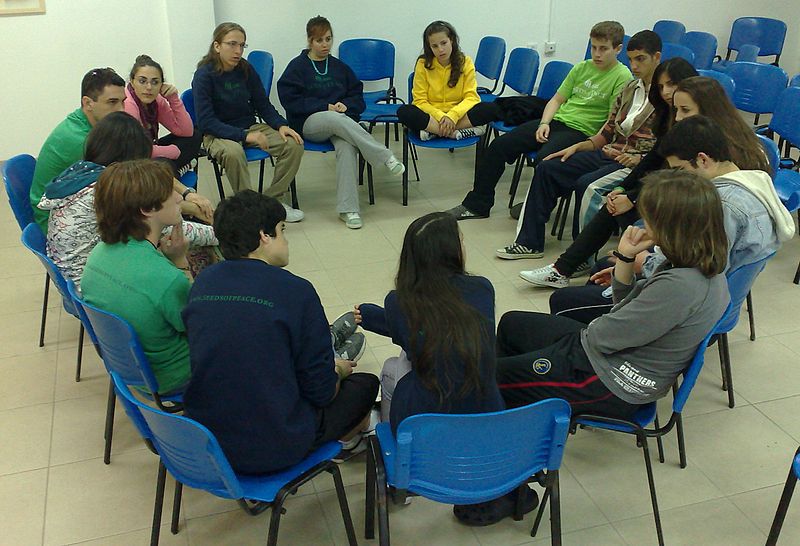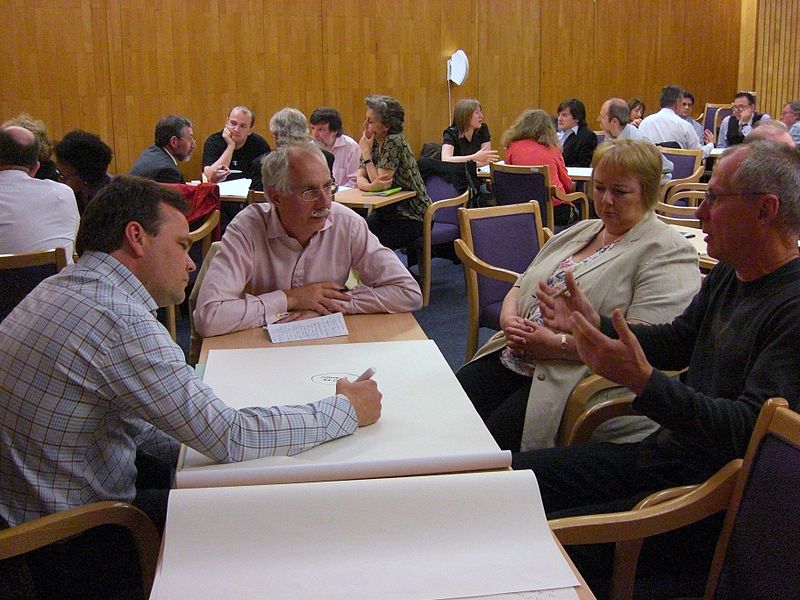Difference Between Dialogue and Discussion
Key Difference – Dialogue vs. Discussion
Dialogue and discussion are two words that can be confusing for most of us, although there is a slight difference between these two words. We all have been a part of a group in a college, or at work where we enter discussions or dialogues with others. But how exactly do we define the difference between dialogue and discussion? First, let us look at the meanings of the two words. A dialogue is a conversation that takes place between two or more people. In a dialogue, there is a free flow of communication as people exchange their ideas and also respond to the thoughts of others. A discussion, however, is quite different to a dialogue although in a discussion also we exchange information as we converse with others. The key difference between dialogue and discussion is that most discussions are decision-based; hence the flow of ideas is often disrupted as people make an attempt to prove the validity of their idea, rather than being open to the ideas of others. Another major difference between dialogue and discussion derives from the secondary meaning of the word dialogue. Dialogue can be used for a conversation that operates in the form of a feature in a book or play.
What is Dialogue?
A dialogue refers to a conversation that takes place between two or more people. This can take place in any setting whether it is at a school, college, or even in a work environment. In a dialogue people freely express their ideas about a particular topic. This can be considered as a positive way of obtaining new knowledge and also learning to accept the points of view of other people.
The word dialogue is also used for conversations as a feature of a book, play, etc. In most novels, we find small dialogues that break the monotony of prose writing. This is a technique used by writers to keep the reader interested.

What is Discussion?
A discussion refers to talking about something so as to reach a decision. The key feature here is arriving at a decision. In most organizations, discussions are arranged so that the best manner of handling a particular issue can be chosen. In a discussion people not only present their ideas but often oppose the ideas of others to highlight the suitability of their idea or proposition.
Discussion in literary works refers to examining something. For instance, when we say the writer engages in a discussion of social stratification, we are highlighting the fact that the writer is introducing various points of view to examine a certain topic.

What is the difference between Dialogue and Discussion?
Definitions of Dialogue and Discussion:
Dialogue: A dialogue is a conversation that takes place between two or more people.
Discussion: A discussion is talking about something so as to reach a decision.
Characteristics of Dialogue and Discussion:
Decision:
Dialogue: In a dialogue, the decision is not a key component.
Discussion: In a discussion arriving at a decision is a key component.
Flow of Ideas:
Dialogue: In a dialogue there is a freer flow of ideas.
Discussion: In a discussion the flow of ideas is often hindered by those who participate in the discussion.
Features:
Dialogue: In books and plays dialogues appear as features.
Discussion: In books, discussions do not appear as features.
Image Courtesy:
1. Shlomi Dialogue By Seeds_of_Peace (Dialouge Seminar ’09) [CC BY-SA 2.0], via Wikimedia Commons
2. “Small group conversation at a Gurteen Knowledge Cafe” by Dgurteen [CC BY-SA 3.0] via Commons
ncG1vNJzZmivp6x7pbXFn5yrnZ6YsqOx07CcnqZemLyue8OinZ%2Bdopq7pLGMm5ytr5Wau26wyJqjqJ%2BlmnqiusNmraxllJ7ApMHSrKCopl8%3D